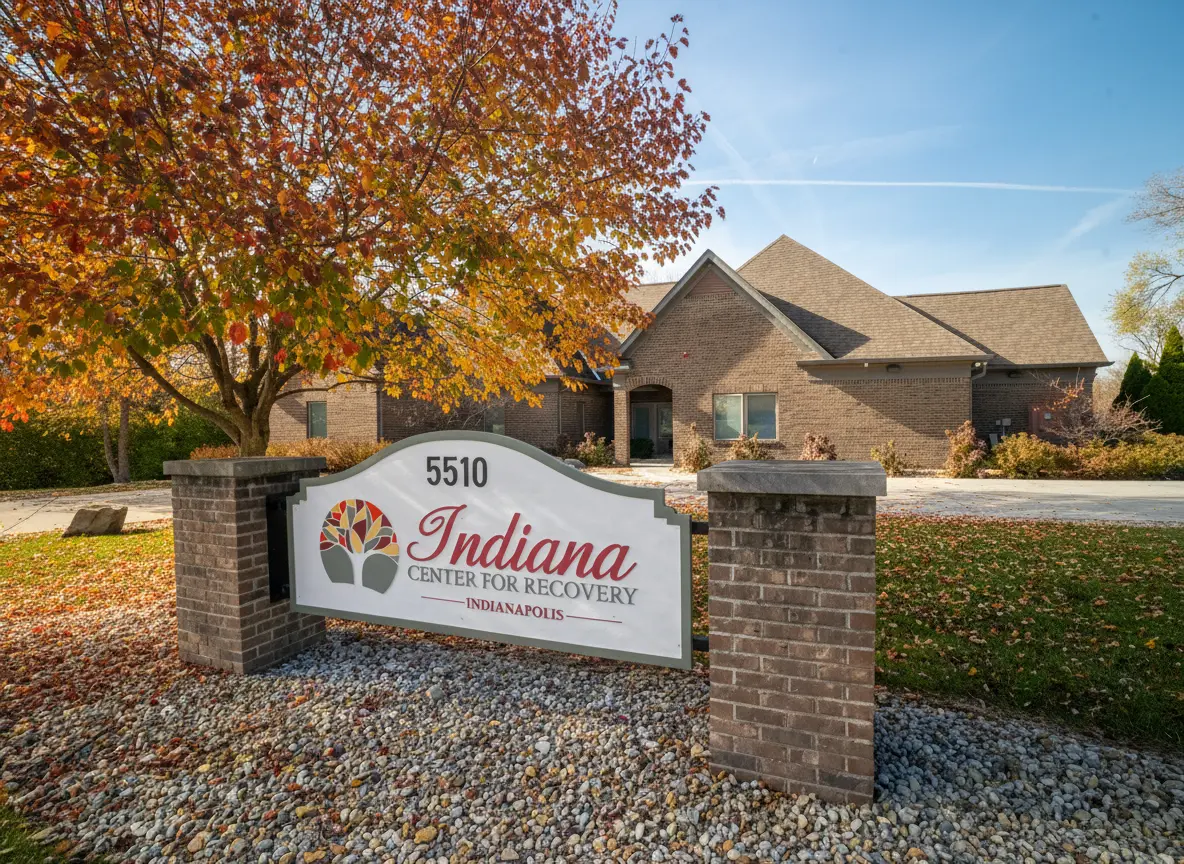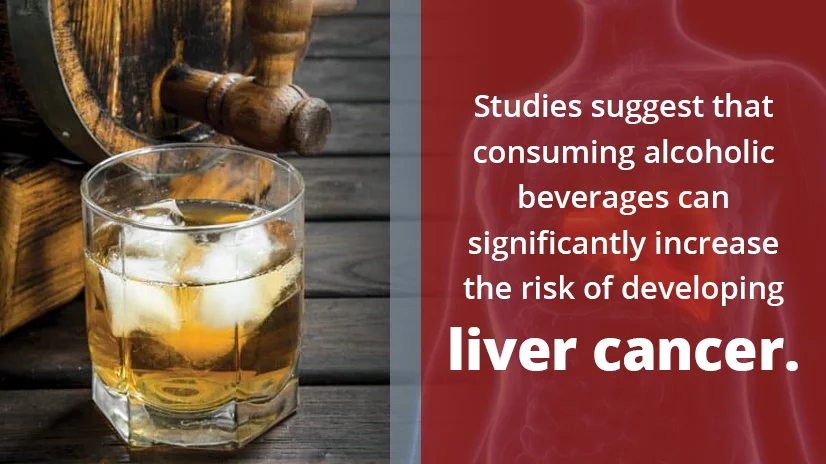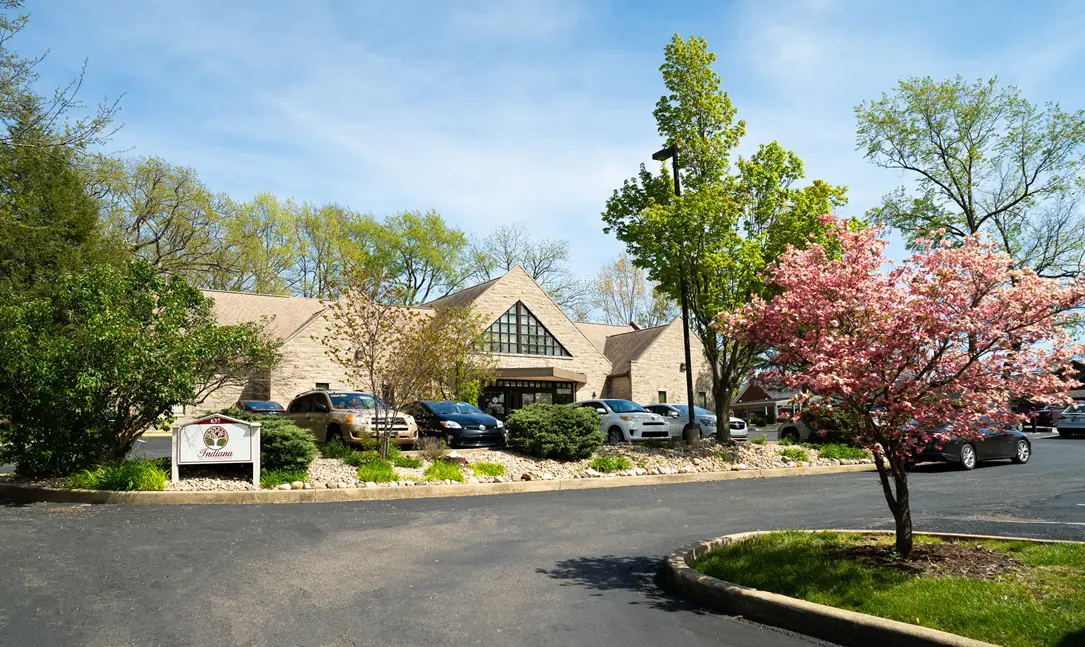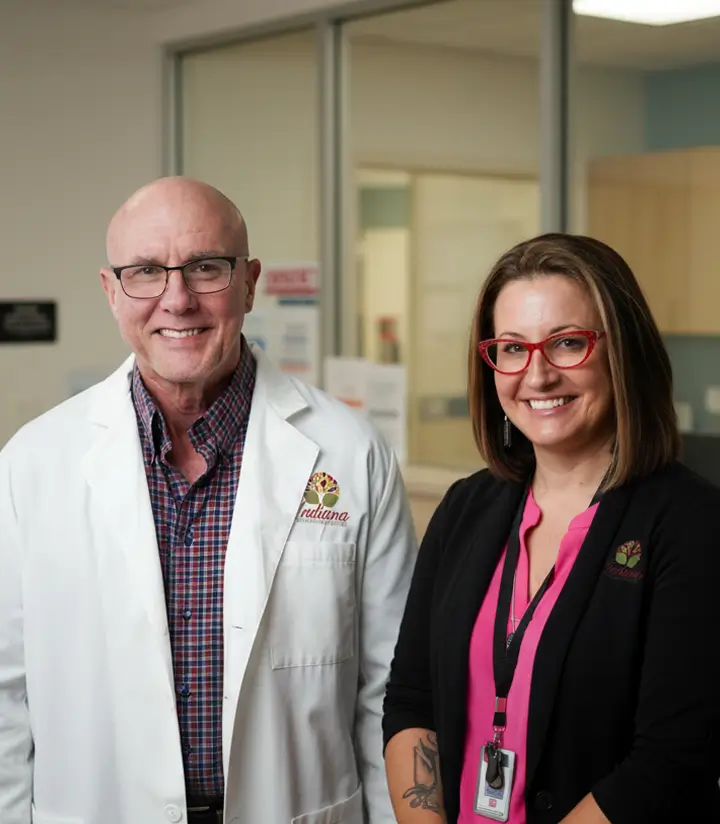
Can Alcohol Cause Liver Cancer
When discussing the impact of alcohol on our health, its effects on the liver often take center stage. The liver, a vital organ that is in charge of metabolizing substances in the body, is particularly prone to damage from excessive alcohol consumption.
Alcohol use has been linked to liver cancer in numerous studies and research findings. This blog will explore the question, “Can alcohol cause liver cancer?” Continue reading to find out.
Key Takeaways
Alcohol usage is a significant risk factor for liver cancer, necessitating awareness and preventive measures. This article covers:
- Chronic alcohol abuse leads to liver damage, inflammation, and scarring, increasing the risk of cancer.
- Reducing alcohol intake, maintaining a healthy lifestyle, and undergoing regular check-ups can lower liver cancer risk.
- Treatments for alcohol-induced liver damage range from medications to surgical and non-surgical interventions.
Reach out to Indiana Center for Recovery at (844) 650-0064 for support in overcoming alcohol addiction and leading a sober life.

Understanding Liver Cancer
Liver cancer occurs when abnormal cells in the liver grow out of control. It’s a serious condition with severe consequences if not detected and treated early. There are two primary types of liver cancer: hepatocellular carcinoma (HCC) and cholangiocarcinoma (CCA). HCC starts in the main liver cells, while CCA begins in the bile ducts.
Common symptoms of liver cancer include unexplained weight loss, loss of appetite, and a feeling of fullness after a small meal. Some people may experience upper abdominal pain, nausea, and jaundice, which leads to yellowing of the skin and eyes. Fatigue and swelling in the abdomen or legs are also frequent symptoms.
Several risk factors contribute to liver cancer, with alcohol use being a significant one. Long-term alcohol use can damage liver cells, increasing the risk of cancer development. Other risk factors include chronic hepatitis B or C infection, obesity, diabetes, and exposure to certain chemicals, such as aflatoxins and vinyl chloride.
Liver cancer can be challenging to diagnose in its early stages because signs may not appear until the disease has progressed. Therefore, individuals with risk factors must undergo regular screenings and seek medical help if they experience any concerning symptoms. Early detection can enhance treatment outcomes and increase the chances of successful recovery.
The Role Of Alcohol In Liver Cancer
Alcohol use is a significant risk factor for liver cancer, contributing to the development of the disease through various mechanisms.
Alcohol-Induced Liver Damage
Alcohol use can cause severe damage to the liver over time. When you consume alcoholic drinks, your liver works hard to break it down and remove it from your blood. However, heavy drinking can overwhelm the liver, leading to inflammation and liver cell damage. This condition is called alcoholic liver disease (ALD).
ALD progresses through several stages, including fatty liver, alcoholic hepatitis, and liver cirrhosis. Fatty liver, the earliest stage, is characterized by fat buildup in liver cells. While often symptomless, it signals the liver is struggling. If alcohol use lingers, it can lead to alcoholic hepatitis, a more severe condition with symptoms like jaundice, fever, and abdominal pain.
Long-term heavy drinking can cause cirrhosis, where healthy liver tissue is replaced by scar tissue, severely harming liver function. Each of these stages increases the risk of developing liver cancer, as the damaged liver cells are more susceptible to mutations and cancerous changes.
Mechanisms Of Alcohol-Induced Carcinogenesis
Alcohol can cause cancer through several biological mechanisms. One key mechanism is the production of acetaldehyde, a toxic byproduct of alcohol metabolism. Acetaldehyde can damage DNA and proteins, leading to mutations that may cause cancer. It also interferes with the body’s ability to repair this damage, leading to a higher risk of liver cancer.
Another mechanism involves oxidative stress. Alcohol metabolism in the liver generates reactive oxygen species (ROS), highly reactive molecules that can damage cellular components, including DNA. This oxidative stress can lead to genetic mutations and changes in cell signaling pathways, promoting cancer development. Additionally, chronic alcohol use can impair the immune system, reducing the body’s ability to identify and destroy cancerous cells.
Excessive drinking of different types of alcohol also disrupts the balance of hormones in the body, including those that regulate liver cell growth and death. This disruption can lead to uncontrolled cell division and tumor growth. Understanding these mechanisms highlights why long-term alcohol usage is a major risk factor for liver cancer.
Synergistic Effects With Other Risk Factors
Alcohol use doesn’t act alone in increasing liver cancer risk; it often works in tandem with other factors. One such factor is hepatitis infection. Hepatitis B and C viruses cause chronic liver inflammation, leading to liver damage and increasing the risk of liver cancer. When combined with heavy alcohol use, the risk escalates significantly, as both factors compound liver damage and inflammation.
Obesity and diabetes are the other biggest risk factors for liver cancer. Both conditions can result in non-alcoholic fatty liver disease (NAFLD), where fat accumulates in the liver without alcohol use. When combined with alcohol-induced liver damage, the likelihood of developing liver cancer increases. Alcohol can exacerbate the harmful effects of obesity and diabetes on the liver, accelerating the progression to liver cancer.
Genetic factors also play a role in liver cancer risk. Some people may have genetic variations that make them more susceptible to alcohol-induced liver damage and cancer. Moreover, lifestyle factors such as poor diet and smoking can amplify the carcinogenic effects of alcohol. Smoking, for example, introduces carcinogens that can further damage liver cells and increase cancer risk.
By understanding these dynamics, individuals can make sound decisions about their alcohol use habits and take proactive steps to safeguard their liver health.
Prevention And Risk Reduction
Preventing liver cancer and reducing the risk of developing it involves adopting several proactive measures. Here are some effective strategies:
Moderation And Abstinence
One of the most effective ways to reduce the risk of liver cancer is to moderate alcohol use or abstain from it altogether. For those who choose to drink, it’s crucial to follow moderate drinking guidelines, which typically means up to one drink per day for women and up to two drinks per day for men.
Abstaining from alcohol can be particularly beneficial for individuals with other risk factors for liver cancer, such as a family history of the disease or chronic liver conditions. By limiting or avoiding alcohol, you can significantly reduce the risk of developing liver cancer.
Healthy Lifestyle Changes
In addition to moderating alcohol consumption, adopting a healthy lifestyle can further lessen the risk of liver cancer. This includes having a well-balanced diet rich in fruits, vegetables, and whole grains while reducing the intake of processed foods, sugary drinks, and unhealthy fats.
Regular physical activity can also promote liver health by helping keep a healthy weight and reducing the risk of obesity and fatty liver disease. Avoiding the use of tobacco products is also essential, as smoking has been linked to an increased risk of liver cancer.
Screening And Regular Check-Ups
Regular screening and check-ups are essential for early detection and prevention of liver cancer. Those with risk factors like heavy alcohol use, hepatitis, or obesity should undergo regular screenings to monitor liver health and detect any abnormalities or signs of cancer at an early stage.
Screening tests may include blood testing, imaging studies such as ultrasound or CT scans, and liver biopsies. Early detection enables prompt intervention and treatment, improving the chances of successful outcomes and reducing the impact of liver cancer on overall health and well-being.
By incorporating these preventive measures into their lives, individuals can prioritize their liver health and lower their risk of developing this serious disease.
Treatment Options For Alcohol-Induced Liver Damage
When alcohol-induced liver damage progresses to a severe stage, treatment becomes necessary to manage the condition and prevent further complications. Here’s an overview of the various treatment options:
Pharmacotherapy
Pharmacotherapy uses medications to manage symptoms, alleviate liver inflammation, and promote liver regeneration. For those with alcohol-induced liver damage, medicines such as corticosteroids, pentoxifylline, and antioxidants may be prescribed to lessen inflammation and oxidative stress in the liver.
These medicines can help slow the development of liver disease and improve liver function. Additionally, medications may be prescribed to manage complications such as ascites (fluid buildup in the abdomen) and hepatic encephalopathy (brain dysfunction due to liver failure).
Surgical Treatment
In cases where alcohol-induced liver damage progresses to severe liver disease, surgical interventions may be necessary. Surgical options for treating liver damage include resection, where a portion of the liver affected by the disease is removed, and liver transplantation, where the damaged liver is replaced with a healthy donor liver.
A liver transplant is often considered in cases of end-stage liver disease or when other treatment options have been exhausted. However, eligibility for liver transplantation may depend on several different factors, including the severity of liver damage, overall health status, and adherence to alcohol abstinence requirements.
Non-Surgical Options
Non-surgical treatment options for alcohol-induced liver damage may include various therapies aimed at targeting cancerous cells or managing symptoms. Chemotherapy utilizes anti-cancer drugs to kill cancer cells or slow their growth, while radiotherapy uses high-energy beams to destroy cancer cells.
Targeted therapy focuses on specific molecules in cancer growth, while immunotherapy harnesses the body’s immune system to fight cancer cells. These non-surgical options may be used alone or with other treatments, depending on the individual’s specific condition and treatment goals.
Each treatment approach has pros and cons, and decisions should be made in consultation with a healthcare provider, depending on individual circumstances and disease severity.
Frequently Asked Questions (FAQ)
What are the first signs of liver damage from alcohol?
Early signs of liver damage due to alcohol include fatigue, nausea, and abdominal pain. In addition, yellowing of the skin and eyes (jaundice), swelling in the legs and abdomen, and dark-colored urine may appear. Changes in appetite and loss in weight also indicate liver problems.
If you notice these symptoms, seeking medical advice promptly is crucial. Cutting down or stopping alcohol consumption can help avoid further damage and allow the liver to heal. Regular check-ups and embracing a healthy lifestyle are essential for managing liver health.
What are the chances of getting liver cancer from alcohol?
Long-term heavy alcohol consumption significantly increases the risk of developing liver cancer. Alcohol damages liver cells over time, leading to inflammation and scarring (cirrhosis), which are risk factors for liver cancer. The higher the amount of alcohol a person consumes, the higher their risk.
However, not everyone who drinks heavily develops liver cancer, and other factors like genetics and overall health also play a role. Cutting down on alcohol use and adopting a healthy lifestyle can reduce the risk. Regular medical check-ups can aid in monitoring liver health and detect any potential issues early.
Will my liver heal if I quit drinking?
Your liver can heal if you stop drinking alcohol. Quitting alcoholic drinks allows the liver to repair itself and regenerate healthy tissue. However, the extent of healing depends on factors like the severity of liver damage and how long you’ve been drinking.
To support liver health, it’s vital to maintain a healthy lifestyle with a well-balanced diet, regular exercise, and avoiding harmful substances. Seeking medical advice and monitoring liver function through check-ups are also beneficial for ensuring recovery and preventing further damage.
Seek Support At Indiana Center For Recovery
Are you struggling with alcohol use disorder (AUD)? At Indiana Center for Recovery, we’re here to help you lead a sober life and avoid alcohol-related health issues.
Our journey starts with alcohol detox program, where we help your body eliminate harmful toxins and prepare you for the next steps in your recovery. After detox, you can choose between our intensive residential alcohol rehab or flexible outpatient alcohol rehab program. Our programs include evidence-based therapies, expert medication management, family therapy, and holistic methods to ensure a well-rounded addiction recovery.
Don’t wait to begin your journey to sobriety. Call us at (844) 650-0064 to learn more and take the first step today. Your path to a happier, healthier, alcohol-free life begins here.



 100% Confidential
100% Confidential
